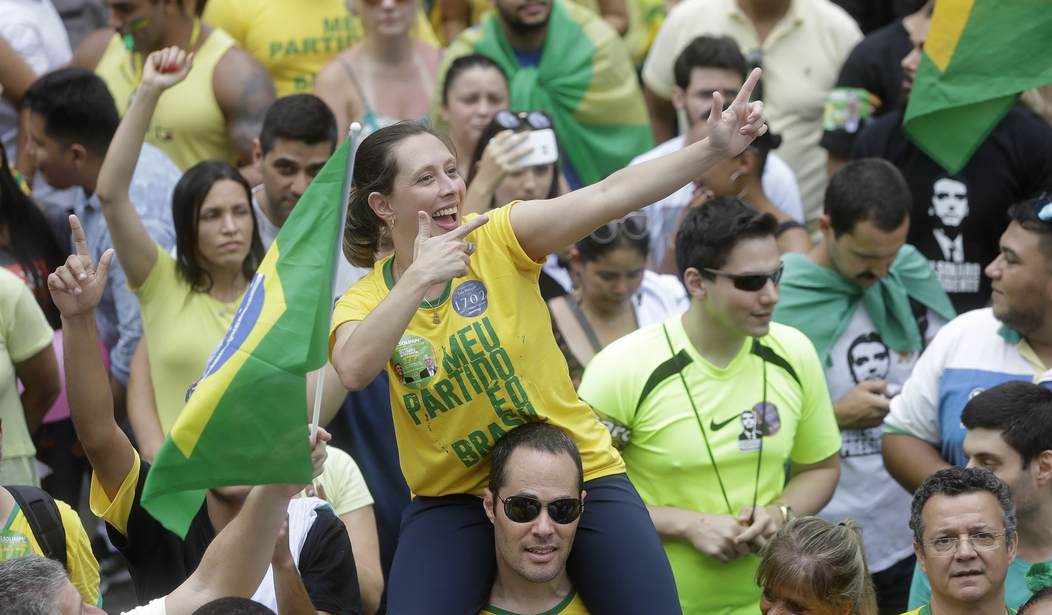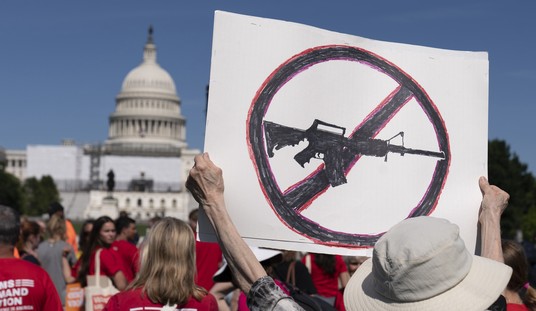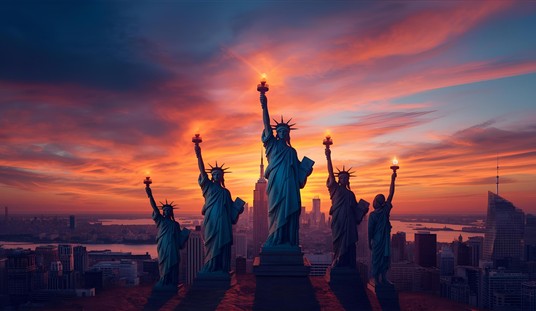Dr. John Lott, head of the Crime Prevention Research Center, has a challenge for anti-gun academics: put your money where your mouth is.
Lott takes issue with a claim by Daniel Webster, the head of Center for Gun Policy and Research at Johns Hopkins University, who asserted in a Washington Post column back in December that in the country of Brazil “every 1 percent increase in firearm ownership is associated with a 0.6 percent increase in overall homicide rates.” According to an interview with Fox News Digital, Lott was so taken aback by the claim that he decided to see how many anti-gun researchers would be willing to test Webster’s theory now that Jair Bolsanaro’s generally pro-gun policies have been upended by new president Luiz Inacio Lula da Silva, who’s cracked down on legal gun ownership since taking office.
“How could somebody with a straight face go and tell the Washington Post this is what he believes the relationship is,” Lott told Fox News Digital. “Nobody calls him on it. It was kind of what I finally saw his statement in the Washington Post, that’s what kind of got me to go and offer people the bets.”
Lott said he reached out to 12 academics in the U.S. earlier this year with a proposal: A $1,000 bet on whether the homicide rate would increase in Brazil under Lula and his administration’s gun ownership crackdown.
“Here is what I offer you. Let’s bet $1,000 and make it simple on whether the homicide rate in Brazil will go up or down during the first two years of Lula’s presidency. If the homicide rate goes down from what it was in 2022, I will pay you $1,000. If it goes up, you will pay me $1,000,” Lott wrote in his emails to fellow academics, which were provided to Fox News Digital.
“If you prefer, we can designate charities that we want the money to go to. Given the importance you put on gun control and the large percentage change in gun ownership that Lula is imposing, you should expect a substantial drop in homicides, but, as I say, let’s keep it simple on whether the homicide rate goes up or down.”
A funny thing’s happened since Lott issued his challenge. Not only have none of the academics he reached out to taken him up on his offer, many of them are now talking about complicated crime rates can be; a stark contrast to their usual assertions that imposing a particular gun control law will lead to a specific reduction in crime… or in Webster’s case, that a increase in gun ownership automatically leads to more crime.
Lott provided Fox News Digital with his correspondence with academics, including Duke University professor Phil Cook, for example, who told Lott, “I like the idea of a bet, but am not going to take this one, since I have no confidence that guns and ammo will actually become scarcer in the neighborhoods with high rates of violence.”
Indiana University’s Paul Helmke told Lott that he’s “not in the practice of making bets,” and while it “sounds like some interesting developments in Brazil,” Helmke said he is not familiar enough with the country’s data collections and crime issues.
A handful of the 12 academics responded to Fox News Digital’s inquiries on the bet, including Stanford University’s John Donohue, who said he rebutted Lott with previous crime data from Texas in the 1990s.
“I asked him why when Texas prohibited gun carrying for protection, Houston and NYC had the same murder rate in the early 1990s, but when Texas changed to be very permissive towards guns, Houston now has a murder rate three times as high as NYC. John was unwilling to concede that the pro-gun shift had hurt Texas, saying that other factors explain why it has done so poorly relative to New York,” Donohue told Fox News Digital.
“But the same would be true for Brazil. Many factors will influence crime in this relatively poor country that is going through a politically and economically turbulent time,” he added.
I think that’s one of the points that Lott was trying to make with his offer. After all, for gun control advocates the only meaningful solution to high rates of violent crime is more gun control, but Lott has pointed out that Brazil’s homicide rate actually declined after Bolsonaro loosened the country’s restrictive gun laws. I’m sure there have been a number of factors at play, but the fact remains that as more Brazilians became legal gun owners, the murder rate dropped to levels not seen in decades. That’s not supposed to happen under the “more guns, more crime” theory advanced by Webster and others, and now Lott is willing to bet that Lula’s new war on legal gun owners isn’t going to make the country a safer place.
Lott argued that one of the reasons researchers should study Brazil is due to the country’s “huge changes” to its laws, “from a [600%-plus] increase in gun ownership to a ban on gun and ammunition sales and forcing people to give up guns that they have already.”
“The idea of a bet is to see what happens before and after a change in gun control laws. The U.K. had much lower murder rates than the U.S. before they had any gun control laws, and their murder rate has actually gone up relative to the U.S. after they adopted gun control laws, such as the 1997 handgun ban,” Lott told Fox News Digital.
Harvard University’s David Hemenway told Fox News Digital that Lott’s proposal was a “silly stunt” and that homicides in Brazil are affected by “scores of factors,” such as “the economy, truces among criminal organizations, gun smuggling rates and police effectiveness in enforcing the gun laws.”
And the same holds true for the United States as well. Crime does not automatically increase year after year, despite the fact that there are millions of firearms sold in the U.S. on an annual basis. It ebbs and flows; rising dramatically from the early 1960s until the early 1990s before dropping by more than 50% between 1991 and 2020, when the COVID pandemic, civil unrest, court and school closures, and the defund the police movements helped spark a surge in violent crime that is now starting to abate.
If these researchers want to claim that “it’s complicated” I won’t disagree, but that’s a far cry from the “more guns equals more crime” ideology that the seem to hold so dear… at least when money’s not on the line. Kudos to John Lott for putting his offer out there. It’s too bad (but very telling) that none of the anti-gun academics he reached out to were willing to accept his bet on Brazil’s homicide rate.








Join the conversation as a VIP Member